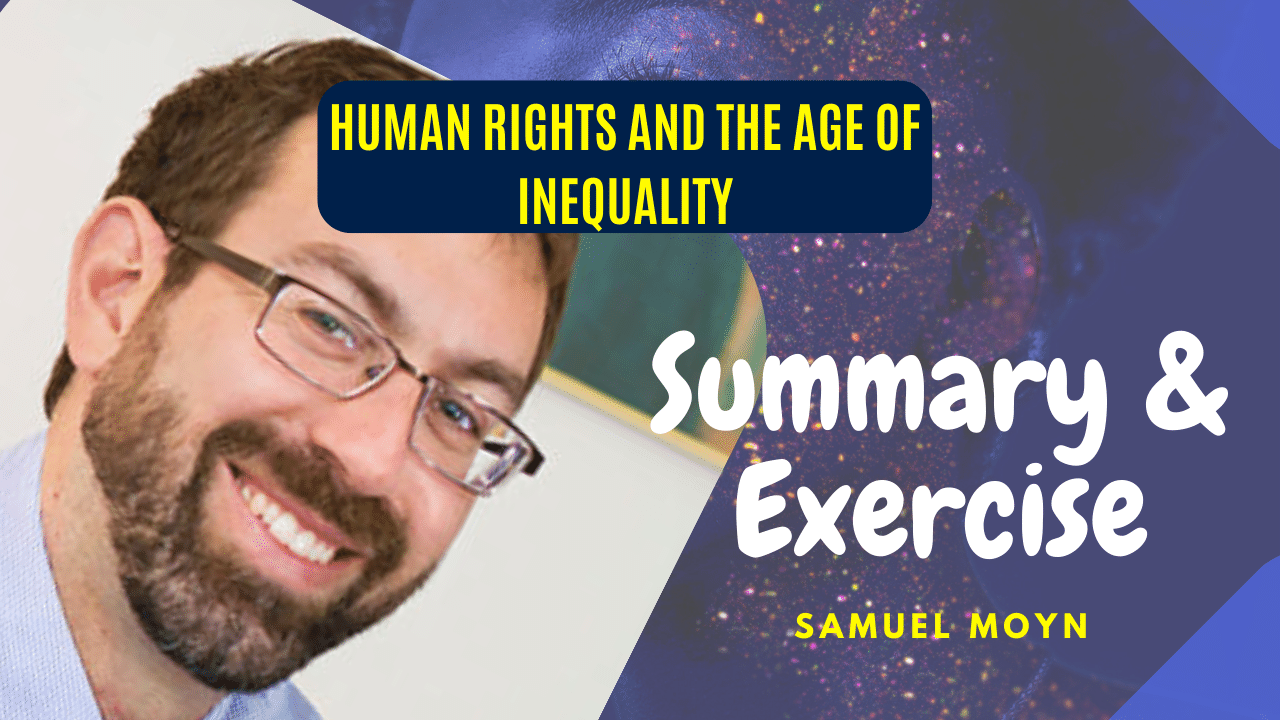Human Rights and the Age of Inequality
Samuel Moyn discusses the enormous mismatch between the egalitarian dilemma and the human rights solution in “Human Rights and the Age of Inequality,” which necessitates a complement rather than a substitute. He asserts that the human rights regime and movement are simply inadequate to deal with global inequity.
About the Author:
Harvard University’s Jeremiah Smith, Jr. Professor of Law and Professor of History is Samuel Moyn. He authored The Last Utopia: Human Rights in History in 2010, and Christian Human Rights is his most recent work. His legal scholarly interests include international law, human rights, the law of war, and legal theory from both historical and contemporary viewpoints. He has published on a wide range of intellectual history topics, most notably twentieth-century European moral and political thought. He is the author of many volumes on European intellectual history and human rights history. His most new publication is Not Enough: Human Rights in an Unequal World (2018).
He is now writing a new book for Farrar, Straus and Giroux about the origins and relevance of the humanitarian war. He has published work in the Boston Review, the Chronicle of Higher Education, Dissent, The Nation, The New Republic, the New York Times, and The Wall Street Journal over the years.
Summary
Moyn begins the essay with a story about Croesus (the last king of Lydia), a rich monarch who considered himself to be the happiest of mankind. He wanted his folks to be happy and free of all kinds of sorrow, but he had one problem: he didn’t want to invest his money to alleviate his people’s misery. He had amassed wealth for himself, which was ultimately seized by Persian King Cyrus the Great and his soldiers. after he’d been vanquished.
The author associates this situation with the modern world, where inequality exists and available means and resources are distributed unequally. The writer claims that while December 10 is celebrated as Human Rights Day every year, “no steps have been taken to ensure equal access to rights and property among the world’s rich and poor.” There is only one solution to these various obstacles: distributive equality, which he finds nearly difficult in actual life. According to the author, there are two major stages in writing the history of human rights to that of political economy:
- The first was the heroic age of the national welfare states after World War II.
- The second was the political economy ascending beyond the nation during the 1940s.
In his State of the Union address, Franklin D. Roosevelt famously called for a “second Bill of Rights” that included socioeconomic rights, but he overlooked three critical facts: Provincial America’s admission into the North Atlantic consensus; promising and imagining freedom from want everywhere in the world. Human rights suffered greatly after 19403 as a result of favouritism, which divided the world into two groups, namely US-led democratic nations and USSR-led communist nations, resulting in the cold war. Similarly, postwar decolonization could not bring about desired development and human rights among nations because these states prioritized “national welfare” over egalitarian human rights.
Samuel Moyn portrays the question of whether another human rights movement is required, and then provides the example of truth and reality given in Herodotus’ history, which dealt with the necessity for global socioeconomic justice to be redistributed under pressure from the affluent to the poor. Though human rights advocates say that human rights declare equal freedom and rights to humans in papers and ensure them, they are not implemented in current real-life situations.
Human beings will not have genuine and fruitful freedom and rights until and until the current economy and social order persist. Thus, a fair share of wealth and property distribution from rich to poor, redistribution of means and resources, formulation and implementation of laws for fair distribution of wealth by the government, and massive and radical movements are required for an egalitarian society, even though all of these are impractical, inapplicable, and difficult to achieve in practice.


